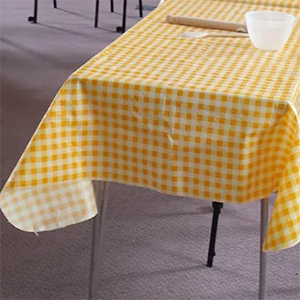About ECC
Who we serve?
This is what is on the official statementThe company’s activities will provide benefit to ...
two interrelated groups of people
1. Adults with additional needs such as
• cognitive challenges, e.g. profound learning disabilities or dementia
• medical challenges, e.g. recovering from a stroke, a mental health diagnosis
• social challenges, e.g. domestic violence, caring for a relative, bereavement, family breakdown
2. Those who provide creative activities for adults with additional needs including
• relatives and friends of those with additional needs e.g. the child of someone with dementia
• professional carers e.g. someone who works in a residential care setting such as an NHS Project
• anyone who wants to support adults with additional needs by providing access to creative activities in a group setting
Phew that's a lot but the idea was to make boundaries to grow into rather than grow out of. All of those examples are things that our founder had dealt with or seen those close to her deal with.
What we do?
Here is another extract from the community benefit statement that explain what ECC does or will do to support those groups of people.
1. Promote creative activities such as knitting and cardmaking (but not exclusively these creative activities) as a means of improving the well-being of individuals and hence the communities that they are part of.
2. Facilitate the setting up of craft groups that enhance the crafting experience of everyone while aiming to support them as they face additional challenges. This includes providing specialist training and support to those who desire to set up and run such groups.
3. Support those using crafts as part of a care package for an adult with additional needs by providing them with ideas for activities and access to materials.
4. Manage and improve the facilities and services of the Company which, in the opinion of the Directors, may enhance the sustainability of the Company.
5. Act in accordance with the sustainable development principle and aim at achieving the well-being goals, as defined by the Well-being of Future Generations (Wales) Act 2015.
Why we do it?
There is a third section on the community benefit statement that describes what benefits ECC expects to bring to the community.
There is a lot of evidence that creative activities are beneficial to our wellbeing including several books on the topic. They can be used to help improve both physical health and mental health. Benefits include distraction from pain, avoiding rumination and creating things that improve self-esteem. Craft groups are a useful tool for bringing people together and therefore do more than encourage people to make things Amongst other things they can:
-
combat loneliness
-
bring together people with similar issues to support each other
-
bring together generations with things like a grandma and me knitting group
-
bring together people with different needs such as able and less able
Setting up a group requires a variety of skills from different spheres of interest including business, creative activities and social care. It can be overwhelming for those who want to set up and run a group especially a stand alone group. Our aim is to provide advice and support to those intending to start such groups as well as those who have already started and may be struggling to keep going. Those providing care for family members as well as those providing care on a professional basis need ideas and materials to help them provide creative activities. The aim is to provide things like activity packs and ideas booklets that will both help them provide activities that meet the needs of those they are caring for and save them time and energy that can be used to improve care in other ways.
Our history

In the beginning was a craft group that was intended to serve people with learning disabilities. What it turned into was the most amazing group of people who were brought week by week by support workers from various care in the community projects.
Not all of the craftees as we called them could speak and many could not walk, There were some who we were not sure how much they could see. Others struggled to use their hands or were taken home when seizures became closer than every twenty minutes. Yet they became family as we made all sorts of things together while having fun.
All was well for 4 years until the government said Covid was so dangerous that social interaction had to be reduced to an absolute minimum. Our happy little family was scattered.
What next?

Lockdown saw our founder building up these impenetrable walls. The book was rewritten so that it was harder to link it to the church. Various ideas were tried in terms of how to build a business based on sharing the benefits of crafting for those living in difficult situations.
A possibility opened up to obtain funding for one of those ideas but to take advantage of this it was necessary to have a legal structure. Our founder knew who to ask to set up a Community Interest Company and wrote the community benefit statement. everyone CAN Craft CIC was born.
ECC goes to the market

One way of getting to know what people think about what ECC was trying to do was to have a stall at the local retail market. For about a year our founder tested various ideas and got to know what people like to do. It was not the most profitable venture and took up a lot of her time.
